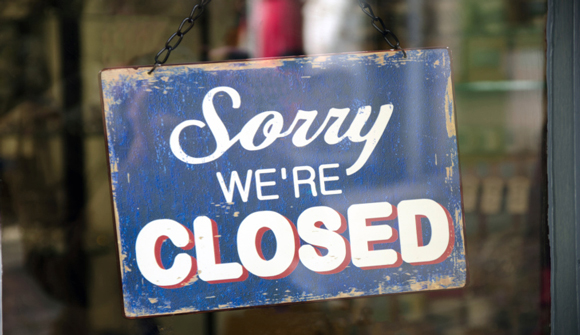
Imagine: the federal government collapses, poof, gone.
Maybe it’s 2034, the date the government admits it can’t pay it’s $50 trillion Social Security bill.
Or maybe it’s earlier. The national debt is at almost $22 trillion, plus the massive everything-bubble created by the federal reserve money printing. Those don’t bode well for the future of the dollar.
It is inevitable that all this debt and the debasing of the US dollar will eventually hurt.
The longest government shutdown in history is a tiny preview, a little case study on what is coming when the federal government shuts down for good.
When it can’t pay its bills, when it runs out of cash flow, or when the US dollar has no value, what will happen?
Will planes fall out of the sky, and terrorists wield AK-47s in the rapidly crumbling streets? Without USDA guidance, humans begin subsisting on dirt and tree bark.
Or… perhaps federal workers will find themselves a private sector job in the emerging gig economy.
Maybe state governments will step up to fill whatever services their voters think were necessary from the federal government.
And maybe we will see government agencies replaced by the private sector.
Sound too good to be true? Because all three of these things are already happening in response to the government shutdown.
1. Unpaid, furloughed government workers have started working gig jobs like temporary labor, security guards, renting rooms on Airbnb, and driving for Uber.
That’s the great thing about the gig economy, where people do contract work and get paid when they complete each task. You can easily jump in and start serving clients in whatever field you know best.
Name one successful company that has 800,000 non-essential employees.
That’s what the government has. Which makes you wonder why exactly we are taking tax dollars from one American, and handing it to someone to do a non-essential job…
For them to instead fill the jobs people want to pay for in the private sector will vastly improve the economy.
The government jobs don’t just go away, they go somewhere else. And that would be even more pronounced if federal taxes didn’t suck up so much of our income.
To be fair, some gig jobs are pretty bottom of the barrel. You’re not going to get rich driving for Uber, and in a couple years, self-driving cars will put you out of a job.
But that’s why it is so important to address this now instead of when the true crisis hits. Government workers need to think about what they would do if they lose their “super-safe” government job for good.
But at that point, we will also see states step in to fill some of the void the feds have left in their wake.
2. Calfornia is paying unemployment benefits to federal workers.
This is actually in opposition to federal guidelines. They say it is fine to provide unemployment benefits to workers who are not being paid and are staying home, but not employees who still have to report to work.
If we can avoid the whole debate about the role of government for a moment, we could view this as an encouraging sign that states are willing to ignore the federal government and do what they think is best for the people of their state. We could use a bit more state power asserting itself against the feds.
As I’ve argued in the past, with 50 state governments ready, the federal government could completely disappear without the world ending.
Yes, there would be some reorganizing, but that is a good thing. It would make the economy more efficient.
And it would allow people to “vote with their feet” and shop around for the best government policies, without having to leave their English speaking homeland. It could be a real boon for states that set favorable policies.
So would Californians still have a freedom-crushing high tax nanny state? Probably, but their policies wouldn’t affect all of us.
I think state governments replacing all the roles of the feds is a step in the right direction. But ultimately, the less the government controls the better.
San Francisco International hasn’t noticed the government shutdown, and its screeners are still getting paid. They aren’t experiencing long lines, mass call-outs for sick days, or lax security standards. They use private security.
22 US airports already use private security.
But airports have to get permission from the TSA to fire them and hire their own private security.
As USA Today points out, any organization has an incentive to protect its own record and budget. If the TSA sets the standards, it should definitely not also be carrying them out. Otherwise, it has an incentive to protect itself rather than the flyers.
Of course, this is all a massive conflict of interest, but that’s classic government for ya.
From basically any perspective you look, airport security should be private.
So when the day finally comes that the massive debts and liabilities can’t be pushed down the road any further, it won’t be the end of the world. People will quickly reorganize. The more freedom they have to work and spend as they see fit, the easier the transition will be.
But there is another takeaway. Be prepared for a couple of months without income, even if you aren’t a government worker. You should always have enough extra available to make it through a few months of unexpected circumstances.
And finally, it makes sense to diversify your own wealth or savings so that you could transition well in a world where the US finally defaults on its enormous debts and the easy money stops flowing.
Owning gold, foreign currencies, and even cryptocurrencies (if you’re the adventurous sort) can mitigate the risks of being too exposed to the dollar.
